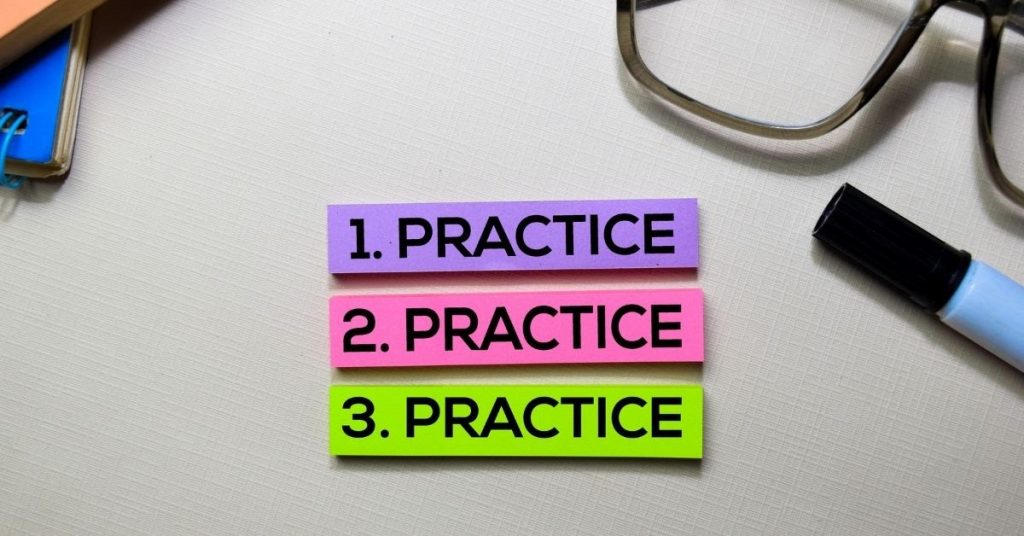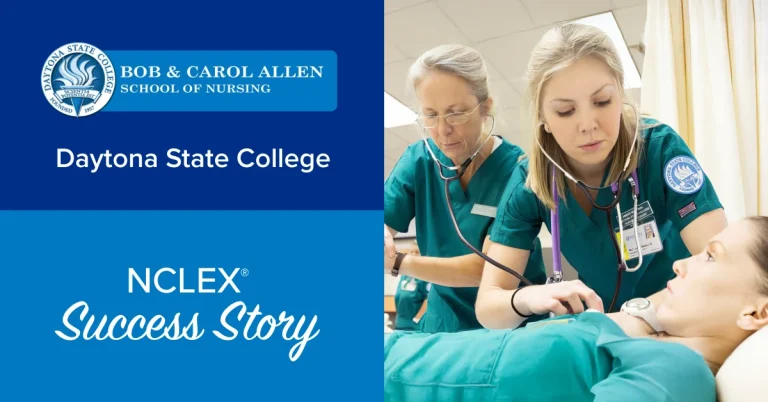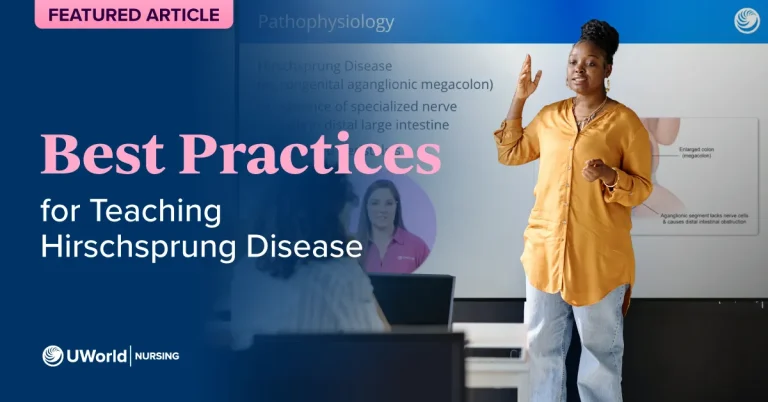By Emily N. Giddin
gs, MSN, RN, CNE, CCRN
As the delivery of nursing care rapidly changes, educators and licensing bodies are working hard to keep pace. The National Council of State Boards of Nursing (NCSBN, 2017) has responded to these changes with the creation of the upcoming Next Generation NCLEX®. Educators must now tailor their teaching and learning activities to prepare students to answer more complex clinical questions and eventually enter a more challenging practice environment. Perhaps the most daunting aspect of Next Generation changes is the same aspect that makes this testing style so reflective of clinical practice: context.
Context is everything.
As nurses, we know that no patient encounter exists in a vacuum, but rather has several moving parts and innumerable potential paths it can take. Whether in clinical practice or on a board exam, our responses depend entirely on the clinical context available to us. The answer to “should I give or hold this medication?” can only be reached through consideration of the patient’s clinical status, history, vitals, the medication’s indications, and other contextual cues, as they are referred to in the Next Generation Clinical Judgment Measurement Model (Dickison et al., 2019).
This is why nursing testing strategies are rapidly outgrowing the time-tested frameworks we have always used to guide students, such as Airway-Breathing-Circulation (ABC), “assess first,” and Maslow’s Hierarchy of Needs. These models still apply, of course, but they are no longer sufficient to account for the growing number of clinical context cues that students must factor into their responses. Our students have long been able to recite these frameworks from memory, yet still fail to apply them when faced with more complex (read: passing-level) NCLEX® questions. As educators, then, our responsibility to our students is twofold:
- Direct students to higher-quality practice questions that incorporate more complex clinical decision-making, and
- Coach them to apply a systematic approach when answering these questions.
Why practice test questions?
Practicing questions regularly and frequently is crucial to NCLEX success, as it enhances learning through the testing effect. The testing effect is observed when repeated recall and application of information (as in repetitive question practice) produces significantly higher retention than other review methods such as re-reading content or even concept mapping (Dunlosky et al., 2013; Dunn et al., 2013; Karpicke & Grimaldi, 2012; Wei & Chamessian, 2015). This is why the standard advice passed from faculty to students has always been: “do as many practice questions as you can.” Several schools of nursing have experienced drastic improvements in NCLEX pass rates by implementing practice question review (Quinn et al., 2018). Cox-Davenport and Phelan (2015) even demonstrated a direct correlation between exam success and the frequency of students’ question bank logins, number of quizzes completed, and total number of questions answered.
So, how should students practice? Which practice questions should my students use?
The evidence clearly supports the use of NCLEX-style practice testing, but with two major caveats: practice must be both specific (representative of NCLEX) and deliberate (involving feedback and ongoing evaluation). When selecting practice resources for your students, always prioritize their utility to support such specific, deliberate practice:
- Specific practice. Practice question review is meant to translate to improved performance on the NCLEX. The concept of transfer-appropriate processing suggests that the more closely practice sessions resemble their anticipated application (in this case, the NCLEX), the better student performance will be (Veltre et al., 2015; Wei & Chamessian, 2015).
- Thus, student practice should match the actual NCLEX as much as possible: in content, format, language, difficulty, mindset, even in screen appearance. The most beneficial practice questions will be written at or above the application cognitive level and will strongly mirror the official NCLEX test plan.
- Deliberate Practice. Practice becomes deliberate and enhances performance most when it is coupled with feedback and ongoing, goal-oriented improvement (Ericsson & Harwell, 2019). This is why we don’t want our students to start with just any bank of questions.
- Students should be provided with two forms of rich feedback when practicing questions: a) feedback provided in question rationales, and b) the ability to track their performance over time. Prioritizing built-in review of both individual item explanations and the ability to track performance in an ongoing manner enables students to set performance goals and work toward improvement.
Faculty frequently opt to incorporate NCLEX-style exit examinations and progression policies into their curricula, believing that this will provide their students with all the review they need. However, this approach has only limited utility as an assessment strategy (Quinn et al., 2018) and does not offer students the necessary ongoing feedback or problem-based explanations.
UWorld has gained recognition for the context-rich, complex clinical scenarios built into every test item we produce. We know this expertise will facilitate our eventual transition to Next Generation testing methods. In the meantime, we will continue to produce rigorous practice questions and hope to also provide you with not only a vast bank of test questions that meet the above criteria, but also some practical applications you can share with your students now. Subscribe to UWorld’s monthly newsletter to receive next month’s article on The Clinical Judgment Model as a Test-Taking Strategy to learn how you and your students can integrate Next Generation frameworks into NCLEX preparation now.
Cox-Davenport, R. A., & Phelan, J. C. (2015). Laying the groundwork for NCLEX success: An exploration of adaptive quizzing as an examination preparation method. Computers, Informatics, Nursing, 33(5), 208–215. https://doi.org/10.1097/CIN.0000000000000140
Dickison, P., Haerling, K. A., & Lasater, K. (2019). Integrating the National Council of State Boards of Nursing clinical judgment model into nursing educational frameworks. Journal of Nursing Education, 58(2), 72–78. https://doi.org/10.3928/01484834-20190122-03
Dunlosky, J., Rawson, K. A., Marsh, E. J., Mitchell, N. J., & Willingham, D. T. (2013). Improving students’ learning with effective learning techniques: Promising directions from cognitive and educational psychology. Psychological Science in the Public Interest, 14(1), 4–58. https://doi.org/10.1177/1529100612453266
Dunn, D. S., Saville, B. K., Baker, S. C., & Marek, P. (2013). Evidence-based teaching: Tools and techniques that promote learning in the psychology classroom. Australian Journal of Psychology, 65(1), 5–13. https://doi.org/10.1111/ajpy.12004
Ericsson, K. A., & Harwell, K. W. (2019). Deliberate practice and proposed limits on the effects of practice on the acquisition of expert performance: Why the original definition matters and recommendations for future research. Frontiers in Psychology, 10(2396), 1–19. https://doi.org/10.3389/fpsyg.2019.02396
Karpicke, J. D., & Grimaldi, P. J. (2012). Retrieval-based learning: A perspective for enhancing meaningful learning. Educational Psychology Review, 24, 401–418. https://doi.org/10.1007/s10648-012-9202-2
National Council of State Boards of Nursing. (2017, Fall). High-level NGN overview (Next Generation NCLEX news). NCSBN. https://www.ncsbn.org/NCLEX_Next_Fall17_Eng.pdf
Quinn, B. L., Smolinski, M., & Peters, A. B. (2018). Strategies to improve NCLEX-RN success: A review. Teaching and Learning in Nursing, 13(1), 18–26. https://doi.org/10.1016/j.teln.2017.09.002
Veltre, M. T., Cho, K. W., & Neely, J. H. (2015). Transfer-appropriate processing in the testing effect. Memory, 23(8), 1229–1237. https://doi.org/10.1080/09658211.2014.970196Wei, P., & Chamessian, A. (2015). Learning medicine: An evidence-based guide. Published by author. https://www.learningmedicinebook.com/





